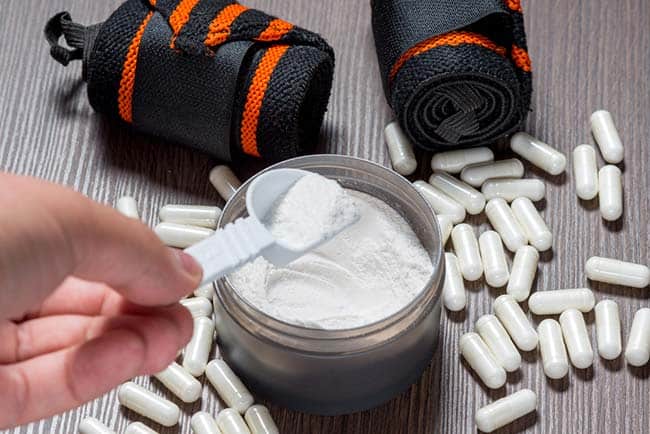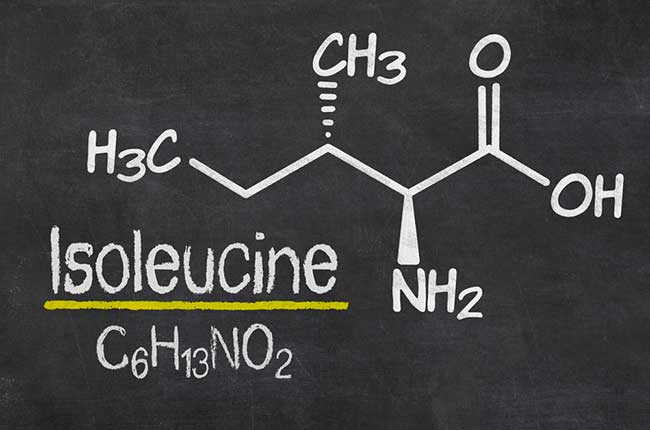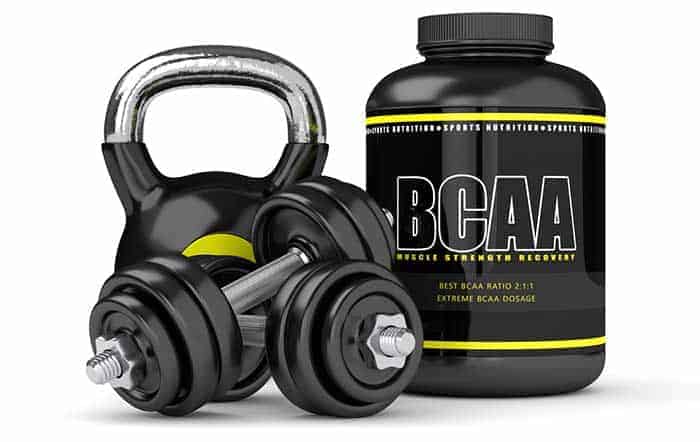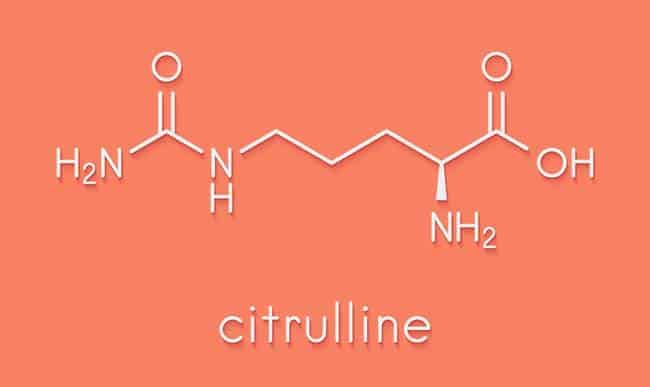So what are branch chain amino acids and what do they do. This is article will go some way to explaining what BCAA’s are why you need them.

BCAA Supplements
So, what are BCAAs and why should you care? “BCAA” stands for branched-chain amino acids. There are just three of them and, if you are serious about buildings some serious muscle, it’s a powerful trio that can help you do it.
As with other nutrients, your primary source of BCAAs is probably going to be your food. However, you can also use supplements to top-up your BCAAs.
Lots of bodybuilders use supplements that contain BCAAs. Other athletes use them too because apart from helping you to get bigger and stronger they can help you to train harder as well.
Other benefits attributed to BCAAs include:
- Reduced post-workout muscle soreness
- Faster healing
- Lees fatigue while training
- Prevent muscle wasting
Additionally, research also suggests oral treatment with BCAAs may help people with cirrhosis avoid the risk of liver cancer. [SOURCE]
However, first things first. Before we go into all the reasons BCAAs are so important, let’s take a closer look at what they are and how they fit into the bigger picture.
A Brief Introduction to Amino Acids
Food is complicated stuff. You may not realize it but it is. Food provides us with energy. It also contains vitamins, minerals, and the all-important macronutrients.
The three macronutrients are carbohydrate, fat, and protein. Although most food contains a combination of the three, one type of nutrient often comes to the fore. For instance, steak is primarily a source of protein, but it may contain quite a lot of fat as well.
The thing is, before your body can absorb nutrients and put them to work, the digestive organs have to split them down into smaller parts. The smaller parts that make up protein are called amino acids and they are the raw material your body uses to support muscle regeneration and growth.
Amino acids are the building blocks of protein. They enter the body as part of your food, the digestive organs release them from protein and then the body re-stacks the blocks to form those slabs of protein we call muscle.
Of course, nature isn’t really that simple. The human body uses 20 amino acids, but they are split into two main groups.
Essential Vs Non-Essential Amino Acids
Essential amino acids are so named because it’s essential that you obtain them from outside sources. Obviously, food is the primary and most natural source of essential amino acids but you can also get them from supplements.
Non-essential amino acids are another matter entirely. Although they are as essential for muscle growth as any other amino acid, it’s not essential that you get them from food. If your diet fails to provide any of the non-essential amino acids it will go ahead and make them itself.
Of the 20 amino acids your body needs, 11 are non-essential.
| The 9 Essential Amino Acids | The 11 Non-Essential Amino Acids |
| 1. Leucine 2. Isoleucine 3. Valine 4. Histidine 5. Lysine 6. Methionine 7. Threonine 8. Tryptophan 9. Phenylalanine | 1. Alanine 2. Arginine 3. Aspartic acid 4. Asparagine 5. Cysteine 6. Glutamine 7. Glutamic acid 8. Glycine 9. Proline 10. Serine 11. Tyrosine
|
Although it’s not strictly relevant to this article, it’s worth touching on the difference between complete and incomplete proteins.
Meat and fish and certain other foods are known as complete proteins.
They are complete because they provide all 20 of the amino acids your body requires. When you eat a sufficient quantity of complete proteins, your body probably won’t have to pick up and slack by making any amino acids itself.
Rice, almonds, and haricot beans, on the other hand, are incomplete proteins.
They do not contain all 20 amino acids. Having said that, eating a carefully planned combination is a good way to rectify this situation. For instance, a portion of beans on toast is a good vegetarian alternative to steak.
BCAAs: The 3 “Very” Essential Amino Acids
BCAAs are essential amino acids that have particular importance and the three share a common bond. “Branched-chain” relates to their unique chemical structure. On a molecular level, BCAAs have an aliphatic side-chain with a branch. Other amino acids do not, but let’s forget the science and move on.
The three BCAAs are:
- Leucine
- Isoleucine
- Valine
Collectively, this important trio is likely to account for up to 33 percent of your muscle mass. Bearing in mind the fact that the muscles also contain a further 17 amino acids, 33 percent is a lot. However, muscle dominance is not the only reason BCAAs are important.
The Role of BCAAs In Protein Synthesis
Protein synthesis is the process your body uses to build muscle and Leucine is a “key” player.
Exercise breaks down muscle tissue, thereby instigating the need for repair. This breaking down of muscle cells to release energy is called catabolism.
Protein synthesis is an anabolic process and it requires energy instead of releasing it. [SOURCE]
This stacking together of amino acids to build muscle fuels the desired gains in muscle strength and size, but it could not happen without leucine. It’s the most important of the three BCAAs and not without good reason.

Why Leucine Is # 1
Leucine enters the muscle cells and, acting like a key, it activates protein synthesis by triggering the kinase enzyme mTOR. Then and only then can the other amino acids go to work. [SOURCE]

The Role of Isoleucine
Isoleucine is the second most important BCAA. Apart from being necessary for efficient protein synthesis, isoleucine is responsible for regulating energy and blood sugar levels.
Isoleucine also increases endurance and prevents muscle wastage. [SOURCE]
Last But Not Least: Valine
Although it’s not as important as leucine and isoleucine, valine is still more important than any of the other essential and non-essential amino acids. Apart from having a prominent role in protein synthesis it further supports muscle growth by improving nitrogen retention. [SOURCE]

The Value of BCAA Supplements
BCAAs are the three most important amino acids. Consuming them in supplement form gets them into the system faster than food is able to do.
Before the body can put food-provided nutrients to work, it has to break them down into their component parts. The BCAAs in supplements are already in a usable form. All the body has to do is absorb them.
Of course, the process of absorbing them is still going to take a little time, but it will be infinitely faster than extracting them from food.
Along with fat, protein is one of the slowest nutrients for the body to digest. In the case of a pill-type supplement, once the capsule/tablet has dissolved in the stomach the active ingredients should be more or less good to go.
It’s also important to remember pill-type supplements are taken with water. They mix with it in the stomach and adopt a liquid state. Protein powders and other similar supplements are mixed with water before consumption.
Liquids travel through the stomach more quickly than food. That means they reach the intestines faster and pass through the intestinal walls into the blood at an accelerated rate.
When it comes to speed, amino acid-providing supplements have an edge that even the best protein-rich food cannot match.
The fact that supplements can get BCAAs to the muscles faster gives them obvious value. However, supplements of any kind should be used alongside a balanced diet. They should never be seen as a replacement for one.
Want the bottom line? There is a lot to be said for taking BCAAs in supplement form.
Some BCAA Supplement Benefits
The thing to remember is the benefits provided by BCAA supplements are the same as the ones you get from food. Supplements are just faster-acting, that’s all. I know this has already been covered but it’s an important point so it’s worth repeating.
When it comes to hard-trained muscles and about to be hard-trained muscles speed can make a big difference. That’s why so many people experience such good results while using supplements.
Let’s take a look at some of the things BCAAs can do when taken before and after a workout or sports session.
BCAAs Reduce Fatigue and Muscle Soreness During Exercise
A number of studies show consuming BCAAs prior to a workout supports increased physical intensity. This partly due to their ability to delay the onset of fatigue. However, a pre-workout dose of BCAAs can also prevent muscle damage during training.
If you want to get the maximum benefits from a workout you need to put in the maximum amount of effort. BCAAs can help you to do this.
During exercise, the muscles are busy using BCAAs and the amount circulating in the blood drops. When this happens, tryptophan (essential amino acid) levels increase in the brain.
Tryptophan is a precursor to serotonin and the resulting elevations in serotonin cause fatigue. This is a well-known fact and is also the reason why so many pre-workout supplements provide extra BCAAs.
The researchers conducting one study on the energizing abilities of BCAAs actually referred to serotonin as “a central fatigue substance”.
As well as establishing the value of BCAAs in the role of fatigue prevention during exercise, the same research also shows BCAAs prevent muscle damage and boost energy. [SOURCE]

BCAAs Decrease Post-Workout Muscle Soreness
A good workout is hard on the muscles. It has to be. If it wasn’t you wouldn’t see a lot of benefit. The same can be said for most sporting activities so post-exercise muscle soreness is only to be expected.
However, some people experience post-workout muscle soreness for a number of days. It can be especially bad for those who are new to intense exercise. People who have taken a short break from exercise can have a similar problem.
Maybe they stopped during their vacation or due to injury or illness. Either way, the break can increase post-workout muscle pain.
Changing your routine often does this too. It’s great for providing muscle confusion and encouraging continued growth. There’s no denying that, but too much muscle soreness is never a good sign. It shows the muscles are still in the process of healing.
Consuming a fast-acting dose of BCAAs post-workout is a good way to accelerate the healing process and improve muscle growth. Research proves this [SOURCE]
However, there is also plenty of research that shows consuming BCAAs prior to a workout also offers good post-workout benefits. [SOURCE]
BCAAs Prevent Muscle Wastage
Research shows BCAAs also prevent muscle wastage. The thing to know is, muscle tissue is being lost and replaced all the time. The catabolic and resulting anabolic processes are normal—a part of life.
The only difference is bodybuilding and sports hit the muscle harder. Muscle wastage happens when muscle tissue breaks down faster than the body can repair it.
A combination of overtraining and bad diet is one possible cause. Certain diseases cause muscle wastage as well. Cancer is one of them.
However, the aging process can do it too. This age-related problem is called sarcopenia and it generally starts to kick in around the time you turn 30.
People who are physically inactive are hit worst. They can lose up to five percent of their muscle mass every decade after they turn 30. Worse still, the process can speed up when you reach 65-75 years of age. [SOURCE]
Obviously, the fact that you are training offers a certain amount of protection. However, we are all only human and it can be hard to make muscle gains when sarcopenia is working against us.
Fortunately, research shows supplementing with BCAAs offers protection from sarcopenia. [SOURCE]
The Bottom Line
So, what are BCAAs and why should you care? If you didn’t know the answer to the first part of that question you do now. As for the second part, that’s pretty much up to you. Do you care?
Whether you care or not, BCAAs are extremely important amino acids and although you should be able to get them from your diet, there is still a lot to be said for throwing a supplement into the mix.
Having said that, if your normal workout is pretty low-intensity you may find eating a balanced diet is enough.
However, if you are more focused on muscle growth or want to seriously improve your strength it could be a different matter. When you train your muscles especially hard you may need an especially efficient way of getting nutrients to them on time.
How serious are you and what do you want? The only person who can answer that is you.



